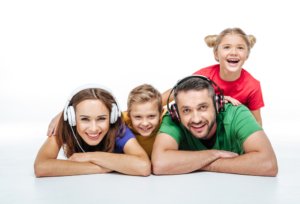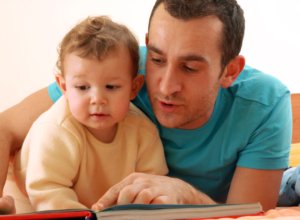Parenting Styles And The Effects Of Them
All of us parents are doing the best we can. We try to shape our children into intelligent, hard-working and respectful human beings. Parenting is important and your parenting style can affect how your child sees herself/himself. Verywell.com wrote about the four parenting styles that researchers have come up with. What is your parenting style?
Authoritarian Parenting
Are you an authoritarian parent? Let’s find out! If you are, you probably believe kids should be seen, not heard. When it comes to rules, you probably believe it’s “your way or the highway,” and you don’t take your child’s feelings into consideration very much. Authoritarian parents believe their kids need to follow their rules no matter what and it is not up for discussion. They restrict their kids from getting involved in problem-solving challenges or obstacles. Instead, they make the rules and enforce the consequences with little care about their child’s opinion.
Their focus is on obedience and respect. They often use punishments instead of discipline. Instead of teaching a child how to make better choices, they’re often focused on making a child suffer and feel guilty for their mistakes.
Children who have strict authoritarian parents tend to follow rules well but they also tend to develop self-esteem problems. Studies show that they often become hostile or aggressive. They may also become good liars because they lied so much out of fear.
Authoritative Parenting
Do any of these statements sound like you as a parent?
- Building a strong and positive relationship with your children is extremely important to you
- You explain the reasons behind your rules to your children
- You enforce rules and give consequences, but you take your child’s feelings into consideration and are willing to talk about them
If so, then you may be an authoritative parent. Authoritative parents tend to use consequences that will teach their children valuable lessons to use in the future. Using positive discipline to prevent behavior problems and to reinforce good behavior is important to them. Authoritative parents equally praise for good behavior and discipline for bad behavior. One doesn’t outweigh the other. They are likely to use a reward system to encourage good behavior.
“Children raised with authoritative discipline tend to be happy and successful. They’re also more likely to be good at making decisions and evaluating safety risks on their own. Researchers have found kids who have authoritative parents are most likely to become responsible adults who feel comfortable expressing their opinions.”
Permissive Parenting
You might be a permissive parent if you set rules but don’t enforce them, rarely give out consequences and think your child will learn best with little interference from you. Permissive parents are lenient and might be known as the “push-overs.” Children will often walk all over their permissive parents.
Permissive parents often only get involved with their children’s problems if something serious is going on.
They don’t often stick to rules and consequences, give into begging and they adapt an attitude of “kids will be kids.” Permissive parents are usually more of a friend than a parent to their children. They are there to talk with their children but they usually don’t take time discouraging bad decisions or giving advice about what path their child should be on.
Kids who grow up with permissive parents:
- Tend to struggle in the classroom (academically)
- Often exhibit more behavioral problems because they haven’t had enough authority and haven’t been taught to follow rules
- Often have low self-esteem
- Experience sadness
Children with permissive parents are also at a higher risk for health problems such as obesity because permissive parents struggle to limit junk food and give in when children throw a fit. They are more likely to have dental cavities because permissive parents often don’t enforce good habits such as teeth brushing.
Uninvolved Parenting
You’re most likely an uninvolved parent if you never ask your child about schoolwork or homework, rarely know where you child is or who they’re with, and spend minimal time with your child.
Uninvolved parents somewhat expect their children to raise themselves. They are very hands-off and don’t often think about their child’s basic needs. Uninvolved parents are like the parents from the movie, Matilda. They are neglectful, whether it’s on purpose or not. Uninvolved parents might struggle with mental health issues or addiction. These are sometimes reasons they can’t fully care for their child’s emotional and physical needs regularly.
Unfortunately, children with uninvolved parents tend to receive very little nurturing, guidance and parental attention.
Children who grow up with uninvolved parents:
- Struggle with their self-esteem
- Struggle Academically
- Exhibit behavior problems
- Tend to be unhappy
Conclusion
Parenting is hard work but the way we do it, matters. It matters for our children’s well-being and studies show that authoritative parenting will reap the best benefits for your child. These are general parenting styles so a parent might not fit into just one. You may be a mixture or you may possibly be none of them. There are always things you can do to be more authoritative.















